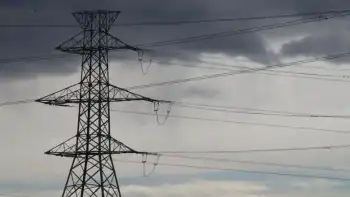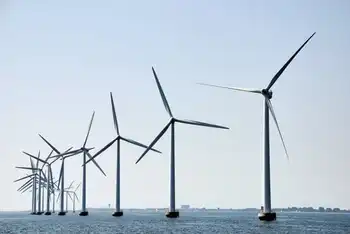Ontarians urged to embrace energy conservation
TORONTO, ONTARIO - All provincial residents must embrace conservation if Ontario is to have stable access to power in the future, the province's chief energy conservation officer said as he urged the government to cut red tape so people can do little things to help.
Peter Love makes 12 recommendations in his annual report, and among them is a call for the government to let people hang their laundry on clotheslines – a practice banned by some municipalities.
Love doesn't know how much energy would be saved if more people used a clothesline rather than a power-hungry dryer, but he said it's ridiculous that some people can't make such an environmentally conscious choice.
"There are a number of subdivisions across Ontario where it is illegal for people to put their clothes out on a clothesline, so I think it sends a very wrong message, and it's one I'm looking to have eliminated," he said.
"We know that people have electric clothes dryers, and we know that some of those are on during the middle of the summer, and we know there is an alternative that requires no energy."
In the same vein, Love would like to see more combined heat and power projects and solar collectors in the province, although they're currently outlawed in some areas.
Love would also like to see every city, town or region have its own energy officer to oversee local conservation efforts.
He said there's a lot of potential for small energy savings across the province that would add up to a large cumulative impact.
Love has set a goal of saving 1,350 megawatts annually through conservation by 2010, and 6,300 megawatts annually by 2025.
He said Ontario consumers have already reduced their electricity consumption by about five per cent between January and June this year compared to the same period in 2005.
Related News

Germany turns to coal for a third of its electricity
BERLIN - Germany is relying on highly-polluting coal for almost a third of its electricity, as the impact of government policies and the war in Ukraine leads producers in Europe’s largest economy to use less gas and nuclear energy.
In the first six months of the year, Germany generated 82.6 kWh of electricity from coal, up 17 per cent from the same period last year, according to data from Destatis, the national statistics office, published on Wednesday. The leap means almost one-third of German electricity generation now comes from coal-fired plants, up from 27 per cent last year. Production from natural…




